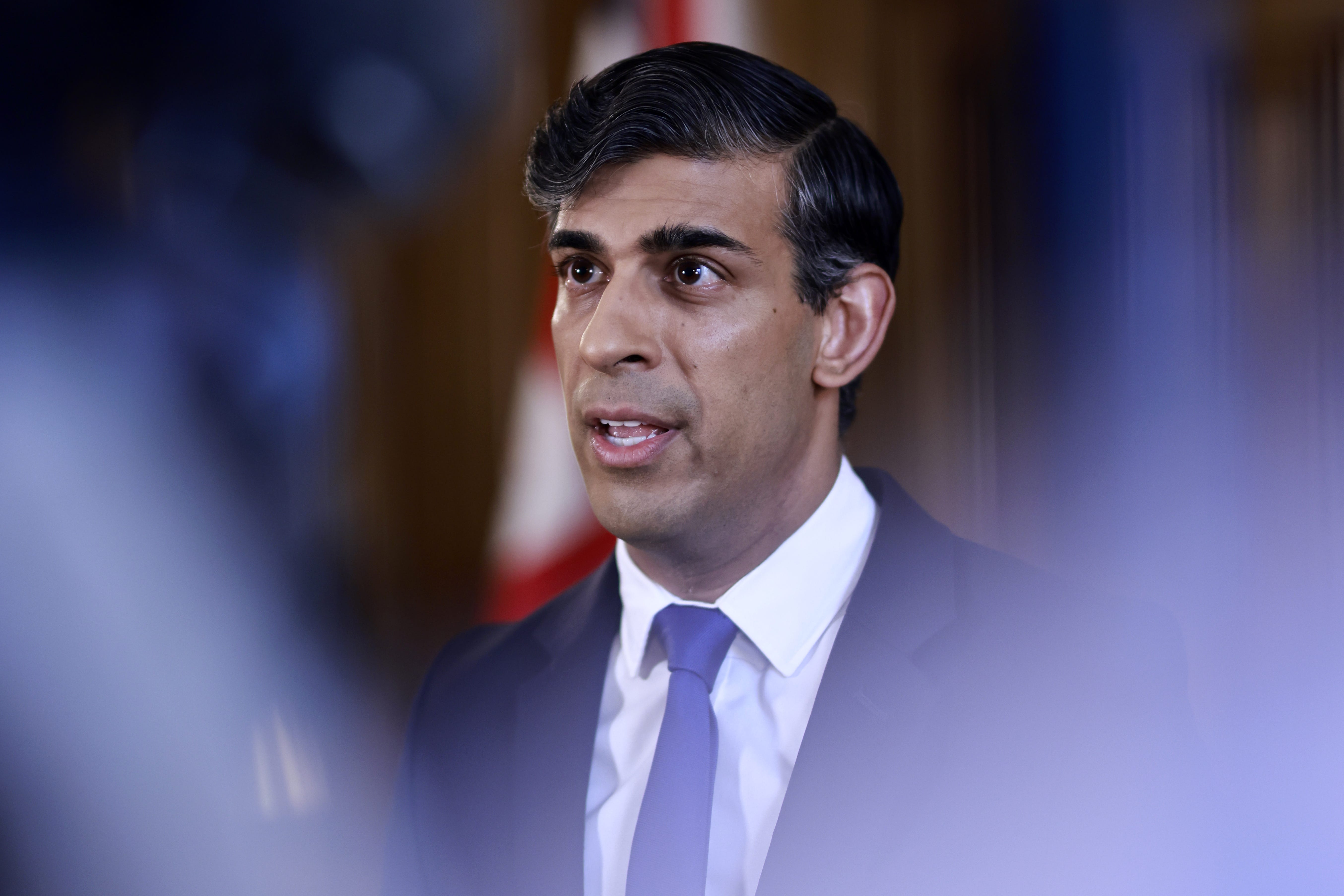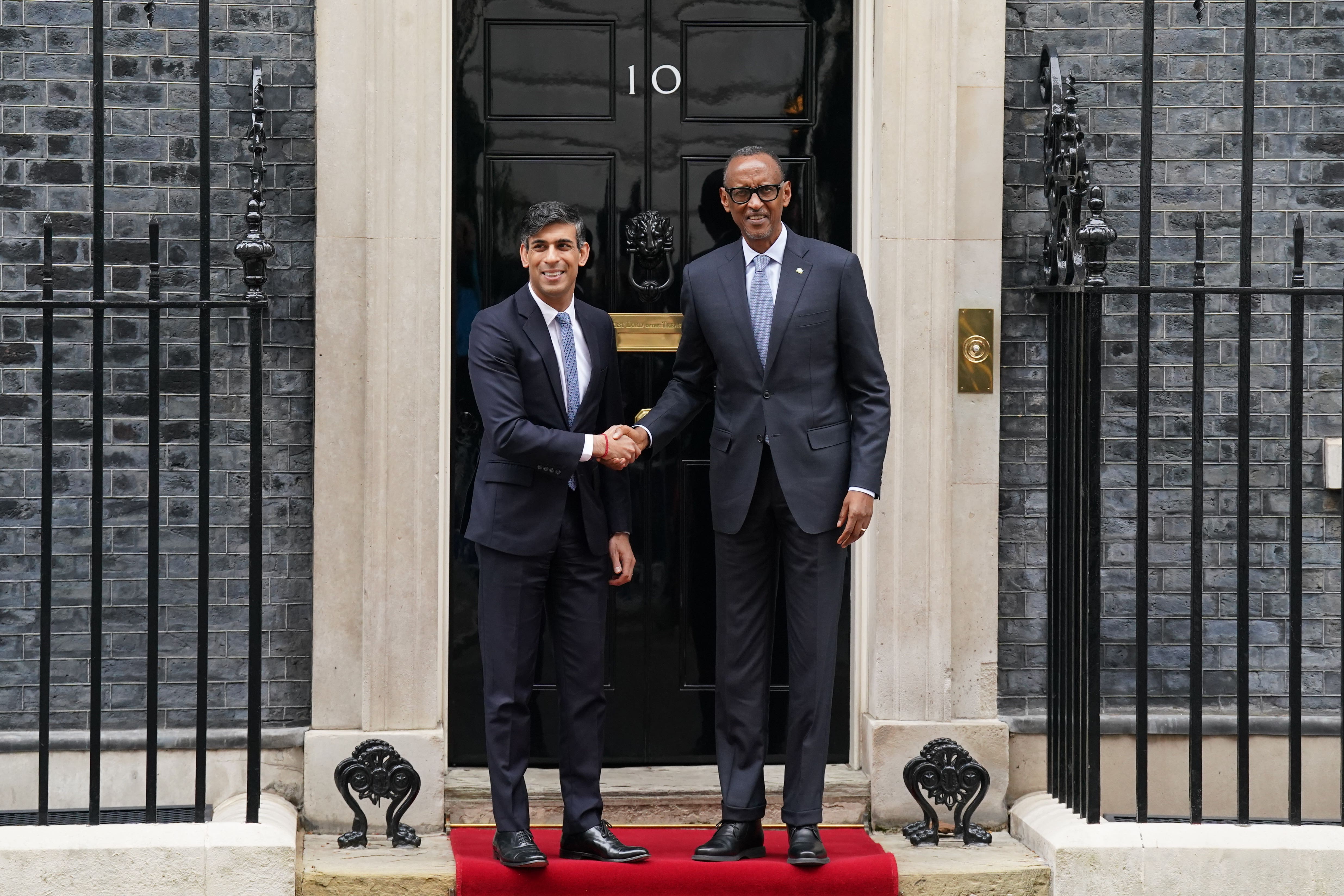Will this week’s Rwanda and smoking ban bills prove the tipping point for Rishi Sunak?
As parliament reconvenes, the PM is confronted with a pivotal few days that could define his government’s direction and his personal legacy


Rishi Sunak is poised to fight two significant battles this week as parliament reconvenes following the Easter break.
The first will be a test of his government, the Safety of Rwanda (Asylum and Immigration) Bill, which will see MPs and peers undertake what looks likely to be the final round of wrangling over Rishi Sunak’s plans to deport asylum seekers to Rwanda.
The second will be a test of Mr Sunak’s personal legacy, as his proposed smoking ban will be given a free vote when it comes to the Commons on 16 April.

What is the significance of the two pieces of legislation?
Both these bills are very important for the prime minister as they will test the feasibility and popularity of two of his major policies just weeks before local elections.
The Rwanda bill is now widely perceived as the Conservatives’ primary solution to illegal immigration, with the hopes that the policy will serve as a deterrent to those crossing the channel in small boats – a top priority for many voters and one of Mr Sunak’s key pledges.
As many Conservative voters defect to right-wing challenger party Reform UK, the Tory leader is facing even more pressure from the right of his party to ensure the bill passes, even if it means overriding the UK’s international human rights obligations.
The success of the prime minister’s smoking ban will be more of a personal win for Mr Sunak and will highlight how united his colleagues are behind his vision.
Announced at the Tory party conference last year, the plans would make it illegal for anyone turning 15 or younger this year to ever be able to buy tobacco products.
The proposals have been widely praised by public health experts, but have received opposition from the libertarian wing of the party.
Any defeat – or sizeable rebellion from his own party – would be a significant personal blow and would further expose the party’s ideological cracks.
What will happen to the Rwanda bill?
MPs are expected to strip out amendments added during the bill’s last round in the Lords before it is returned to the upper house, where peers could then choose to add in more clauses. This would then be put back before MPs, resulting in “ping-pong” where a bill bounces between the two chambers.
It is likely that peers will send back significantly fewer amendments than before, and Downing Street remains confident that the bill will pass and deportation flights will take off “in the spring”.
The big question will be whether the bill contains provisions to override the European Convention on Human Rights if it interferes with the Rwanda plan. That could incite ire amongst the moderate One Nation group of Tory MPs, who have strongly warned against leaving the convention.
Even if the bill passes, the fallout may worsen ideological divisions within the party.

What will happen with the smoking bill?
As it’s a free vote, Mr Sunak does not face the same degree of damage to his authority should colleagues vote against the proposals, and given the government and the Labour Party are in favour of the plan, it is expected to pass.
But there is likely to be a significant movement against the bill this week, with some seeing its existence as contrary to the core values of Conservatism. Sources have suggested that up to 100 MPs are unhappy with the bill, meaning Mr Sunak may be depending on opposition votes for its successful progression through parliament.
Former prime minister Boris Johnson called the bill “absolutely nuts” and said it was “mad” that the party of Winston Churchill was “banning cigars”.
Meanwhile, Tory grandee Sir John Hayes questioned the workability of the legislation, criticising a scenario in which a person aged 28 would be deemed capable of buying tobacco, while someone at 27 wouldn’t.
He told TheGuardian: “I’m in favour of reaching age consent for smoking and many other things. I think any legislation has to be based on whether it can be implemented, whether it will be done. I don’t think this is practically possible.”
Where does this all leave Mr Sunak?
Though we are unlikely to see any major government defeats, or manoeuvring that could result in a sticky end to Mr Sunak’s premiership, both pieces of legislation contain significant risks that could widen cracks in his party’s unity.
With local elections just weeks away, Mr Sunak will be nervous about the country taking to the polls while his colleagues fight among themselves and openly attack his policy proposals.
Even if the party manages to get through this week relatively unscathed, the challenges are not over.
Legal experts warn the Rwanda bill may continue to cause headaches for the government as it could still encounter further legal and logistical hurdles.
As for the smoking ban, even if the bill passes this week, it will encounter further scrutiny in the coming months and plenty more opportunity for criticism from his peers.
Join our commenting forum
Join thought-provoking conversations, follow other Independent readers and see their replies
Comments
Bookmark popover
Removed from bookmarks